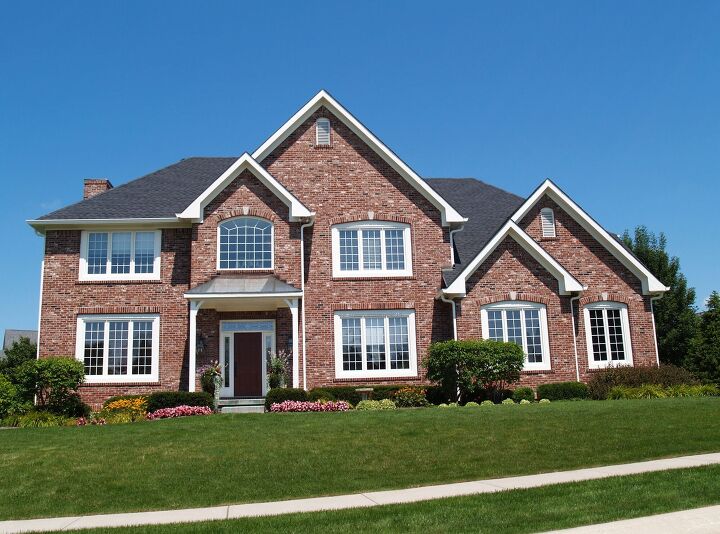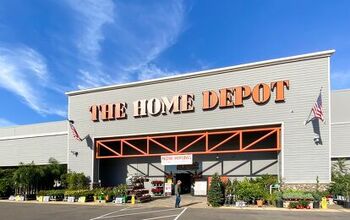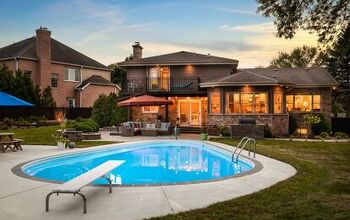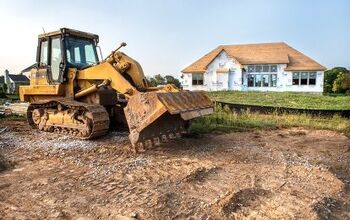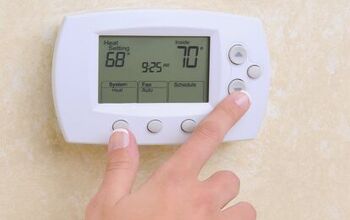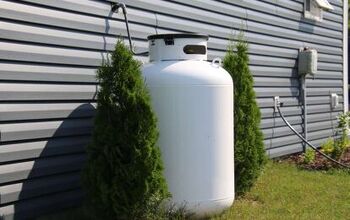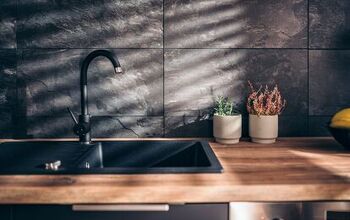Do You Really Need A Bigger House?

If you’re thinking about purchasing a bigger house, join the club. It seems like everyone nowadays is itching to upsize their homes. As recent as 2020, large home sales were up 21%, according to Redfin. But before you take on higher payments, more maintenance, and increased utilities, do you really need a bigger house?
A growing family, starting a home business, or desiring more outdoor space are all reasons you might need a bigger house. If you plan to rent out a portion of your home, going larger makes sense. But bigger houses come with more responsibilities, higher costs, and in many cases, increased risk, so consider carefully before you go big.
Whether you’re purchasing your first house or want to upsize from your current home, think first before you buy large. Make sure you’re buying a bigger house for the right reasons and that you can handle all of the things that come along with it.
Five Reasons It Might Be Time To Get A Bigger House
For many, buying a bigger house makes sense. Here are some main reasons you might consider purchasing a larger home.
1. A Growing Family
If you and your partner plan on having kids (or more kids), you might need a bigger house. But a growing family doesn’t automatically equal a need for more living space. It’s important to be honest and assess your current living situation.
For example, imagine you have one child, plan to have one more, and live in a four-bedroom, 3,000-square-foot home. Rocket Homes suggests approximately 600 to 700 square feet per person for optimal comfort.
Therefore, in this example, you have more than enough space for four people in your household. Each kid gets their own room, and you have one room to spare for a guest room, playroom, gym, or home office.
However, many people living in this same 3,000-square-foot home will find out there’s another kid on the way and instantly call a real estate agent. Suddenly, they need a house with 5,000 square feet, 7 bedrooms, a pool, and high-end finishes. (Okay, maybe this is a slight exaggeration, but you get the idea.)
When it comes to house hunting, it’s critical to be clear and honest regarding your needs versus wants. Now, if your family of four lives in a 1,200 square-foot-home, you’re more likely to benefit from getting a larger home. Although, even those with smaller spaces can make it work, depending on their personal choices and lifestyles.
2. You’re Starting To Work From Home
Are you starting a home-based business or are you shifting to doing more remote work for your company? If so, you might need a larger house to accommodate a home office, storing inventory, holding meetings, etc. Being able to have a separate, designated room for your home office is ideal, especially for tax purposes.
If you live on your own, buying a bigger house to accommodate a home office doesn’t make as much sense. But if there are other people in your household, it’s reasonable to want a private space. Therefore, you may want to find a house with an extra bedroom, finished basement space, or a converted garage.
But if you already have a home, reevaluate your current situation before going bigger. Is there any extra space you can carve out for a home office? Maybe you already have a spare room that’s acting as a storage area that you can convert to an office.
Or perhaps you can build a small shed in the backyard and finish off the inside for your business space. On the flip side, if you plan to operate a bed-and-breakfast, get a bigger house. In other words, always think about if and how you could make your current space work before assuming you need more.
3. You Want A Bigger Yard
Depending on your location, if you want more outdoor space, you may need to find a larger house. The larger homes might rest on larger lots with more acres. However, this isn’t always the case.
Many smaller homes can have substantial yard space. In fact, in some areas, the bigger the house, the less yard space you get. For example, consider a typical suburban street with standard 6,000-square-foot lots.
If you build a 2,000-square-foot single-story home on one of these lots, you’re left with 4,000 square feet of yard. But if you want a bigger house on this same lot, assuming it’s still a single-story, you’ll lose outdoor space. The takeaway is a bigger house doesn’t always mean a bigger yard.
4. You Plan To Rent Out Some Of Your Home
The potential to earn extra income from your property might lead you to a bigger home. If you want to rent out a room in your home or a basement, etc., getting a larger house could make sense. This way, you can rent out part of the property while still having enough personal space.
You would need to make sure the potential rental income you bring in can offset the higher costs of a larger house. You also want to ensure properties in the area rent out quickly and that you’re prepared to handle the responsibility of being a landlord.
5. You Know You’ll Be Taking Care Of Aging Parents
This reason for needing a bigger house is similar to having a growing family., but it has a few extra considerations. For example, will your parents need special medical care or are they self-sufficient? Will it just be your parents or your partner’s parents as well?
Will they only need a bedroom and bathroom, or will they need a separate apartment with their own kitchenette and sitting area? Again, this situation requires some forethought, honesty, and careful planning.
You shouldn’t buy a larger home simply because one day you might end up with your parents living with you. But is it something that you’ve already discussed with everyone involved and is a real possibility within the next few years? If so, then purchasing a larger home could be necessary and make the most sense (f you can afford it).
Things To Think About Before Upsizing Your Home
Before you decide to get a larger house, know that it comes with more responsibility. Bigger houses typically cost more, including higher utilities, insurance, and property taxes. You’ll also pay more when you need to repair or replace things like the roof, HVAC system, windows, etc.
Any upgrades you make will also cost more, whether you’re painting the exterior, landscaping, or replacing furniture. So proceed with caution and ask yourself these questions before you buy bigger:
- Can you afford your new higher monthly payment and all the increased costs?
- Do you have current debt?
- Are you prepared to take care of a larger home?
- Do you have the funds to furnish and decorate a larger house?
- Can you easily meet your other financial goals, like saving, retirement, etc?
- What overall lifestyle do you want?
If your answers to these questions make buying a bigger home unfeasible, then it’s time to look closer at your current home. Maybe it’s time to declutter your house of all the excess stuff to make more room for the things that matter most.
Can you get creative and make your smaller space work? Perhaps you can designate a corner of a room as your office area or convert a closet. Or maybe you have the space to add to your current home instead of buying a bigger place. Talk to a contractor if this is the direction you might end up taking.
Go Big Or Stay (In Your) Home
As you can see, there are many reasons a bigger house makes sense, from your family size increasing to working from home more. Choosing to rent out a portion of your home also makes a larger house more appealing.
However, a bigger house comes with pretty much more of everything — money, maintenance, responsibilities, and risks. It’s essential to make sure you can afford the cost, time, and effort that go hand-in-hand with owning a larger property. If you can’t, then your new potential dream home could quickly turn into your biggest nightmare.
Before you take the plunge to buy a bigger house, make sure it’s the right move for you. Buying a house, no matter what size it is, is always a huge decision. Take your time and weigh all of your options, and consider the pros and cons before you decide.
Related Guides:

Stacy Randall is a wife, mother, and freelance writer from NOLA that has always had a love for DIY projects, home organization, and making spaces beautiful. Together with her husband, she has been spending the last several years lovingly renovating her grandparent's former home, making it their own and learning a lot about life along the way.
More by Stacy Randall



